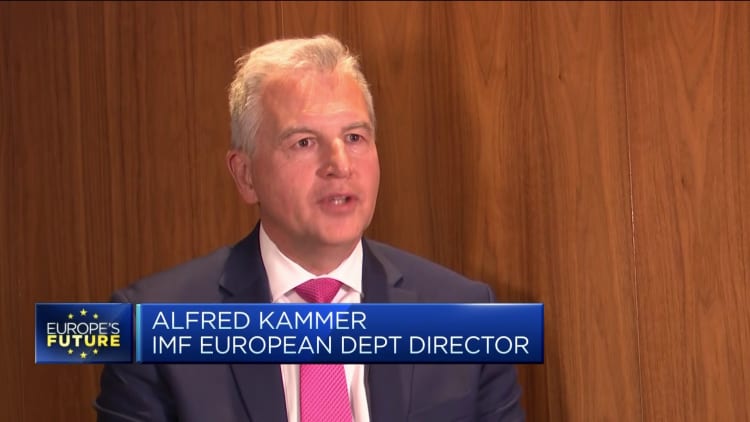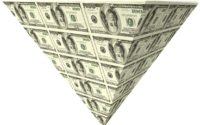European Central Bank set to slow rate hikes as financial conditions tighten
Christine Lagarde, president of the European Central Bank (ECB), pauses during a rates decision news conference in Frankfurt, Germany, on Thursday, March 16, 2022.
Alex Kraus | Bloomberg | Getty Images
FRANKFURT — The European Central Bank is expected to lift its benchmark rate by a smaller step of 25 basis points Thursday, as core inflation declines and its own survey data points to much tighter financial conditions in the region.
The new economic figures both strengthen the case for the ECB to only hike rates by a smaller amount at is policy meeting, and to possibly announce an increase in the pace of its balance sheet reduction.
Quantitative tightening, or QT, has already taken place with the ECB shrinking its gigantic bond portfolio sitting on its balance sheet after years of government debt purchases and monetary stimulus. The ECB has kept interest at zero, and below, for years, and has launched bond-buying program like the APP (Asset Purchase Program) and PEPP (Pandemic Emergency Purchase Program) in an effort to simulate lending.
APP started in mid-2014 to deal with persistently low inflation levels. It was frozen between January and October 2019 and then lasted until July 2022 — but continued to reinvest payments from the assets that had matured. On the other hand, PEPP was a more flexible bond purchase program introduced during the coronavirus pandemic.
“To stop financial conditions from overreacting to a downshift to a +25bp pace, we expect the ECB to announce faster QT: an increase in the roll-off of APP reinvestments from EUR15bn per month to EUR20bn per month from Q3,” said Deutsche Bank chief economist and ECB watcher, Mark Wall, in a note to clients.
Inflation in the euro area rose slightly to 7% in April, according to new data released this week, but core inflation — which excludes food, fuel, tobacco and alcohol — slowed to 5.6% from 5.7%, its first decline since last June and lower than what the market was expecting.
“The inflation trend goes down, as the big push from higher food prices is fading out,” said Joerg Kraemer, chief economist at Commerzbank in a research note.
“It’s a positive sign that core inflation has fallen for the first time in a long time. But because of wage settlements above 5 percent the inflation pressure should remain stubbornly high.”
In addition, the ECB’s bank lending survey pointed to an exceptionally large drop in credit demand amid tighter lending criteria, adding to the case for a smaller rate hike.

A net 38% of banks in the 20 nations that share the euro saw a decline in demand for credit from companies in the first three months of this year. That was the biggest net decline since the global financial crisis of 2008-09.
While the euro area avoided a recession in the first quarter with anemic growth of 0.1%, the effects of the monetary tightening cycle do show the first signs that it’s dampening demand. Traditionally, monetary policy has a time lag of roughly a year and the ECB only started its hiking cycle in June 2022.
“After May, we expect one more rate hike of 25 basis points in June,” said Kraemer.
“Afterwards the ECB should be done with hiking rates and will watch the effects of its tighter monetary policy on the real economy.”
—CNBC’s Silvia Amaro contributed to this article.
[ad_2]
Source link


